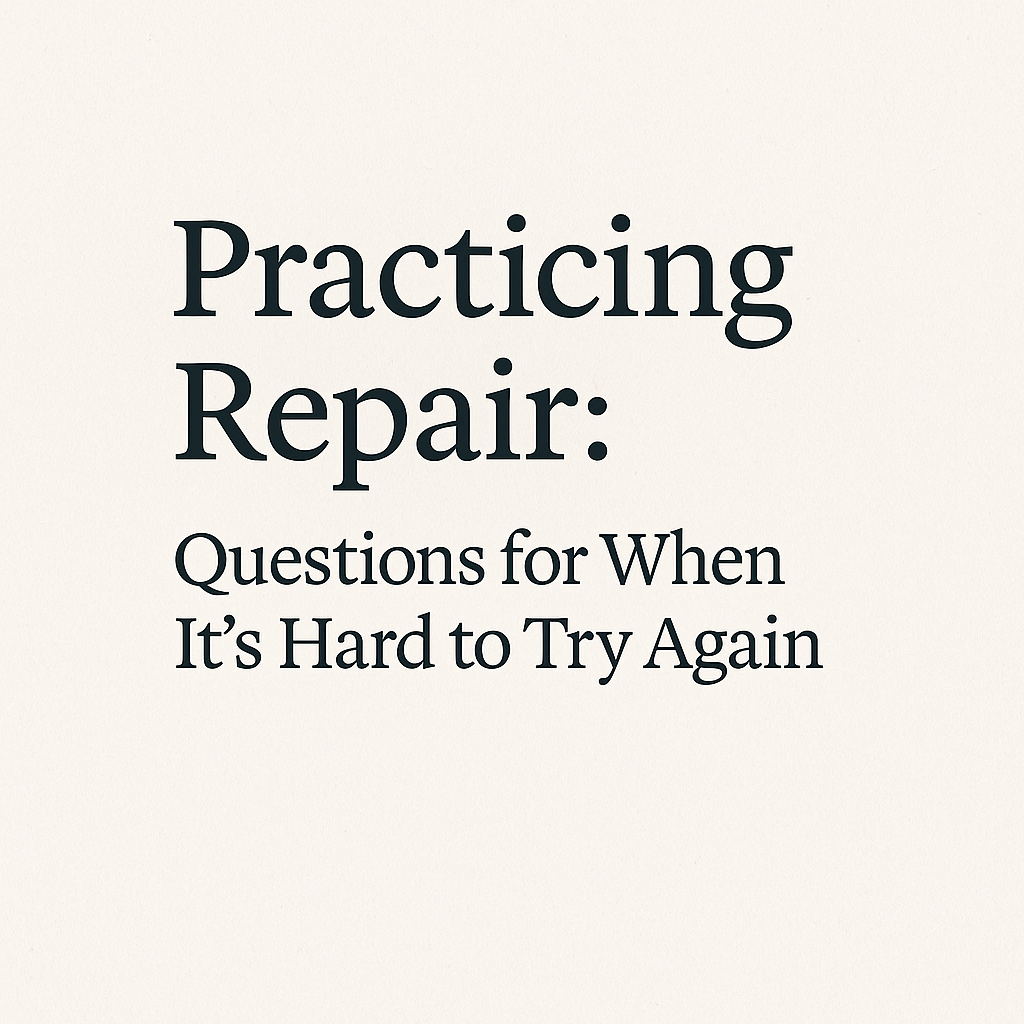Practicing Repair
Questions for When It’s Hard to Try Again
It’s never been harder to be the one who goes first. To reach out after the rupture. To say, “Let’s try again.” But that’s the quiet work of faith—to practice repair when it would be easier to walk away. Inspired by Kate’s conversation with Dr. Becky Kennedy, this discussion guide invites you (and your ministry, your small group, your church) into the sacred, ordinary practice of repair. Not because everything can be fixed. But because connection is always worth trying for.
These questions are for the bridge-builders among us who believe that—even now—it’s not too late to start again. One small step. One halting prayer. One choice toward love.

1. What is the best piece of relationship advice you’ve received (whether its friendship, romantic partners, co-workers, or family—you pick!)?
2. In her TED Talk, Dr. Becky Kennedy suggests the most important strategy in relationships is not perfection, but repair. How does that shift your understanding of what makes relationships last?
3. When you hear the phrase “family cancel culture” what comes to mind? Where do you see this dynamic showing up in your community, congregation, or family?
4. Can you recall a time when a relationship was strained but someone chose connection instead of distance? What difference did that make?
5. What makes repair so difficult in our current cultural climate? What fears or obstacles often keep us from trying?
6. In your ministry (or personal life), what might repair look like in practice—something small, possible, and faithful?
7. How does the example of Jesus’ ministry—eating with outcasts, forgiving failures, restoring the broken—shape the way you think about repair?
8. When have you been the one in need of repair, and someone extended it to you? How did it change you?
9. What is the difference between reconciliation (a full restoration) and repair (a step toward connection)? Why does that difference matter in church life?
10. Think of one relationship where repair feels possible but unfinished. What is one small act you could take toward connection?
11. How might our churches become places known less for division and more for the holy practice of repair?What does the “good life” mean to you?
—
Want to Go Deeper?
Read this Substack Article.
A Blessing for When You’re Not the Person You Meant to Be
Blessed are you who don’t know which version of you will show up today.
The one who reads the cues,
makes space for feelings,
says the right thing at the right time
in the right tone.
Or the one who snaps or shames,
because it’s been a long day
and no one is listening
and you’re just… tired.
Bless this part of you who wants to do it differently.
That wants to pause instead of punish.
That wants to connect, not control.
God, you see all of our parts.
The soft ones, the scared ones,
the ones that flare and the ones that freeze.
Remind me:
I am good inside.
Beloved child of God, after all.
And so is the child before me.
So bless this trying self.
Bless this tired self.
Bless this breaking-and-repairing,
over-and-over-again self.
Make me tender to what I missed.
Make me courageous in repair.
And when I forget—again—
bring me back to love.



